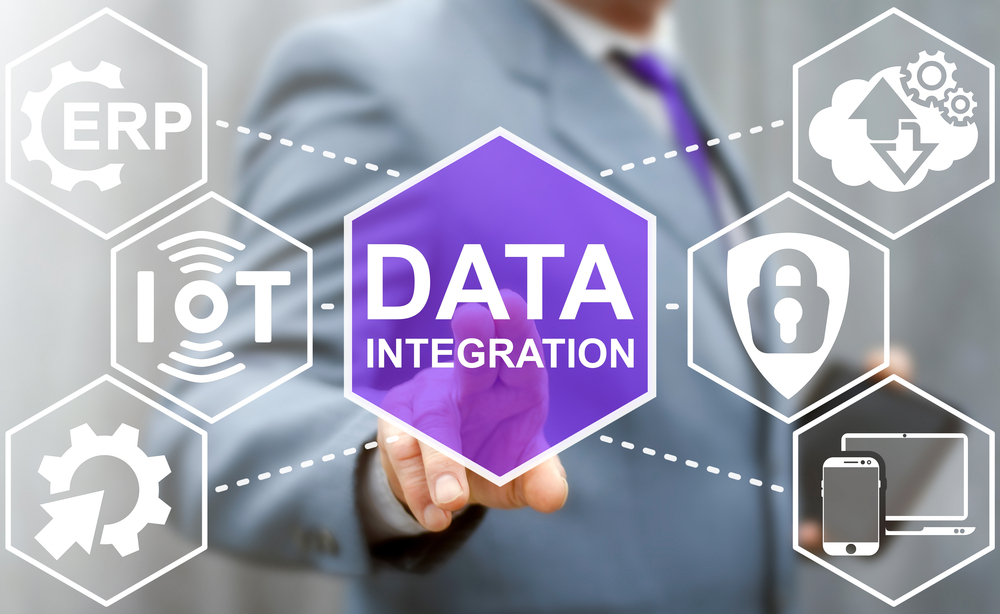Revolutionizing Business Operations: An Insight into Enterprises Resource Planning
Are you looking to improve operational efficiency in your business? Well, don’t look any further because Enterprise Resources Planning (ERP) is the perfect solution for you! ERP systems have revolutionized how businesses manage their resources by providing integrated access to all of an organization’s data. Moreover, they enable organizations to better analyze and use that information to make decisions, resulting in improved overall performance and profitability. This blog post will explore how ERP can help you achieve maximum value from your investments with streamlined operations.
What is Enterprise Resource Planning (ERP) and How Can It Revolutionize a Business’s Operations
Enterprise Resource Planning (ERP) is a suite of software applications that manages and integrates the core processes needed to run a company. These processes include supply chain, manufacturing, services, financial and many others. With a single database, ERP systems bring a level of efficiency that standalone programs cannot match, eliminating data duplication and providing data integrity with a single source of truth.
ERP systems revolutionize business operations in numerous ways. They provide a comprehensive view of business processes, allowing for enhanced decision-making and strategic planning. Businesses can track resources–cash, raw materials, production capacity–and the status of business commitments: orders, purchase orders, and payroll. The applications that constitute an ERP system share data across various departments (manufacturing, purchasing, sales, accounting, etc.) that provide the data. This connectivity fosters improved collaboration, efficiency, and workflow within a company, making ERP systems a driving force for growth and profitability.

Benefits of Using ERP Software for Your Business
The benefits of using ERP software for your business are manifold:
- Increased Efficiency: ERP systems remove repetitive processes and significantly reduce the need to manually enter information. This results in streamlining business processes and makes it easier and more efficient for companies to collect data.
- Better Decision Making: The direct access to real-time information allows managers and business owners to make well-informed decisions. Additionally, most ERP systems offer advanced analytics and reporting tools for a deeper analysis.
- Cost Savings: Over time, ERP software reduces administrative and operations costs. It allows organizations to proactively manage operations, prevent disruptions and delays, break up information logjams, and help users make decisions more quickly.
- Improved Customer Service: With better access to customer information, businesses can provide better customer service. ERP software can help you ensure customer loyalty by providing better communication and quicker service.
- Data Security: One of the biggest advantages of an ERP system is data security. The built-in security systems in ERP ensure that your sensitive data is protected from potential threats.
By integrating diverse functions and processes into a single system, ERP software makes your business more flexible and productive, setting the stage for growth and success.
Components of ERP Systems
ERP systems typically consist of several components, each dedicated to specific business areas:
- Financials: This component is concerned with how your business manages and controls its costs and revenues. It includes core accounting features, such as general ledger, accounts payable, accounts receivable, budgeting, and asset management. It offers real-time visibility into your business’s financial performance and ensures regulatory compliance.
- Human Resources (HR): The HR component manages employee information, offers features for recruiting, benefits, payroll, time and labor management, and more. It aids in tracking employee performance and assists in strategic planning related to human resources.
- Customer Relationship Management (CRM): This component manages all your customer information, sales, and customer service functions. It helps businesses better understand their customer needs and behaviors, thus helping to build lasting relationships with customers and enhancing customer satisfaction.
- Supply Chain Management (SCM): This component helps businesses manage their supply chain processes in a more efficient and transparent way. It includes inventory management, procurement, order management, logistics, demand and supply planning, etc.
- Manufacturing: This module helps businesses manage and streamline manufacturing operations. It includes features like production planning and scheduling, product lifecycle management, plant maintenance, etc.
Each of these components plays a critical role in ERP system functionality, helping businesses operate efficiently and make informed decisions.

How to Choose the Right ERP System for Your Business
Choosing the right ERP system for your business is a critical decision that requires careful thought and consideration. Here are some steps to guide you through the process:
- Understand Your Business Needs: Before starting your search for an ERP system, you need to understand what your business needs are. Identify the problems you are trying to solve, the processes you want to streamline, and the goals you aim to achieve.
- Define Your Budget: ERP systems come with various pricing models. Determine how much you are willing to spend and keep in mind the total cost of ownership, including implementation, training, and ongoing maintenance costs.
- Evaluate Vendor Reputation: Look into the reputation of the ERP vendor. Check their client reviews, case studies, and success stories. A reliable vendor will have a good track record of successful implementations.
- Check System Scalability: As your business grows, your ERP system should be able to keep up. Make sure the system you choose can scale to meet your future business needs.
- Verify Integration Capabilities: If you are using other business systems or applications, it’s important that your ERP system can integrate with them seamlessly.
- Request a Demo: Before making a decision, request a demonstration of the ERP system. This will give you a clear idea of how the system works and if it’s user-friendly.
Remember, the best ERP system for your business is the one that best matches your specific business needs. Take your time, do your research, and make an informed decision.
Challenges Associated with Implementing an ERP System for an Enterprise
While ERP systems offer numerous benefits, implementing them can pose several challenges that enterprises need to navigate:
- Cost: One of the primary obstacles is the high cost of ERP implementation. This includes not just the price of the software but also hardware upgrades, maintenance fees, employee training, and potentially even consultancy fees.
- Time-Consuming: Implementing an ERP system is often a lengthy process that can take several months or even years. It requires careful planning, testing, and data migration, which all take time.
- Employee Resistance: Change can be difficult for employees to accept. The transition from old systems to a new ERP system may meet with resistance, especially if the benefits of the change are not effectively communicated.
- Technical Issues: Depending on the existing IT infrastructure, there may be technical issues during the implementation process. These can include software compatibility issues, data migration problems, or challenges with integrating the ERP system with existing systems.
- Risk of Failure: If not properly managed, ERP implementation projects can fail, leading to wasted time and resources. The risk of failure can be mitigated by thorough planning, setting realistic goals, and having a dedicated implementation team.
- Data Quality Issues: Poor data quality or inconsistent data can cause issues during the ERP implementation process. It’s important to clean and standardize data before migrating it into the new system.
Each of these challenges can be overcome with proper planning, clear communication, and the right resources. Ultimately, the advantages of ERP systems make them worth the effort.

ERP systems play a crucial role in the efficient operation of businesses by integrating various processes and providing real-time insights into business performance. Selecting the right ERP system for your business requires careful consideration, including understanding your business needs, defining a budget, evaluating vendors, and verifying integration capabilities. While implementation challenges may arise, they can be overcome with proper planning and management. In the end, the benefits of an ERP system outweigh any obstacles, making it a valuable investment for enterprises looking to improve their operations and decision-making processes.
